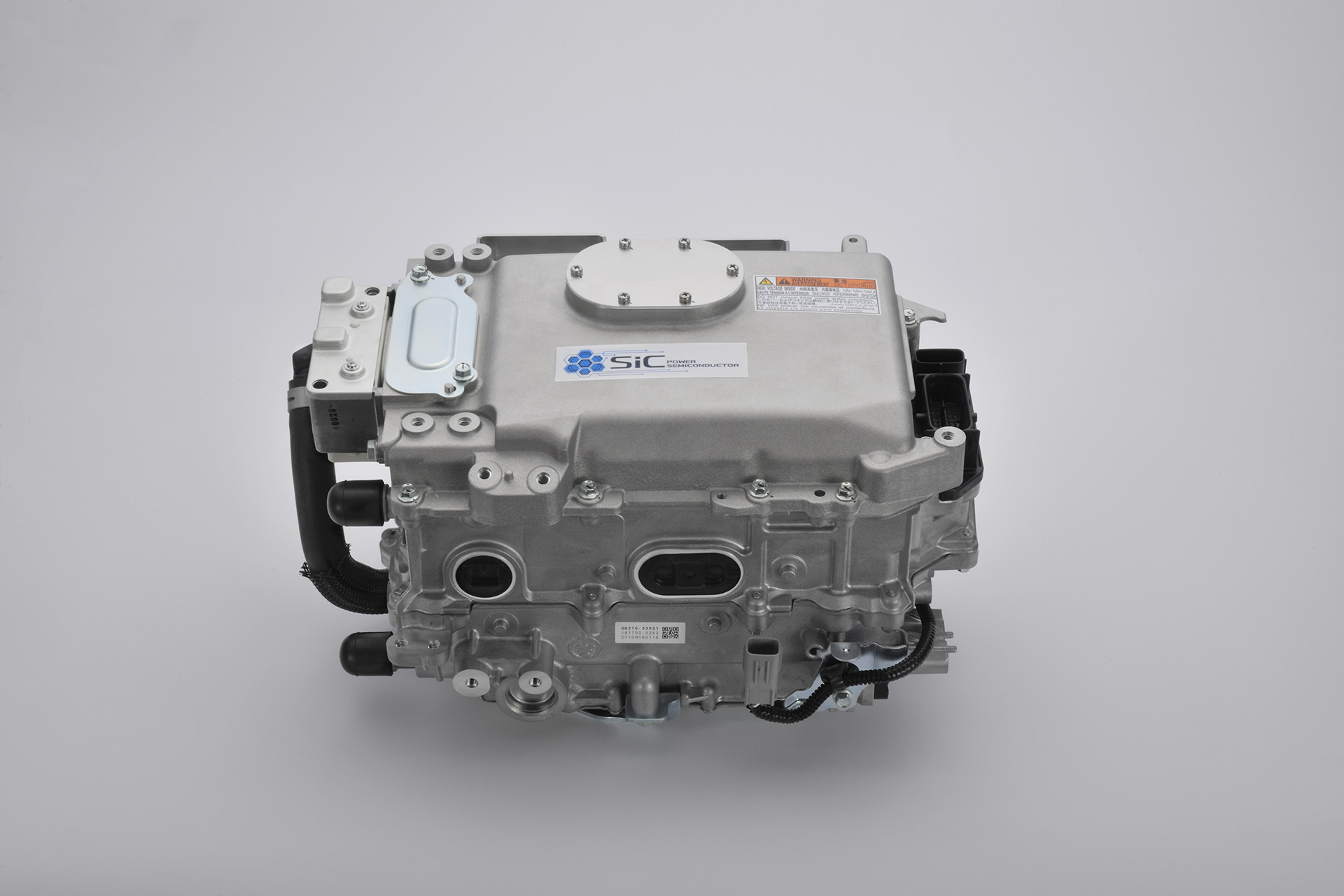Power semiconductors are key components of the power control units (PCUs) used in all types of vehicles with electric powertrains – EVs, hybrids and fuel cell vehicles. Current power semiconductors are leaky, accounting for around 20 percent of a vehicle’s electrical losses, so raising their efficiency could be a rewarding area of study.
Toyota has been working on silicon carbide power semiconductors, which are ten times more efficient than the plain silicon kind. SiC power semiconductors also allow the coil and capacitor to be reduced in size. Through the use of SiC components, Toyota aims to improve hybrid fuel efficiency by 10% and reduce PCU size by 80%.
This year, the company will begin on-road testing of SiC power semiconductors in Japan, using a Camry hybrid prototype and a fuel cell bus.
In the Camry hybrid prototype, Toyota is installing SiC transistors and diodes in the PCU’s internal voltage step-up converter and the inverter that controls the motor.
The bus, which is currently in commercial operation in Toyota City, features SiC diodes in its fuel cell voltage step-up converter, which is used to control the voltage of electricity from the fuel cell stack.
Source: Toyota, Green Car Congress


















































